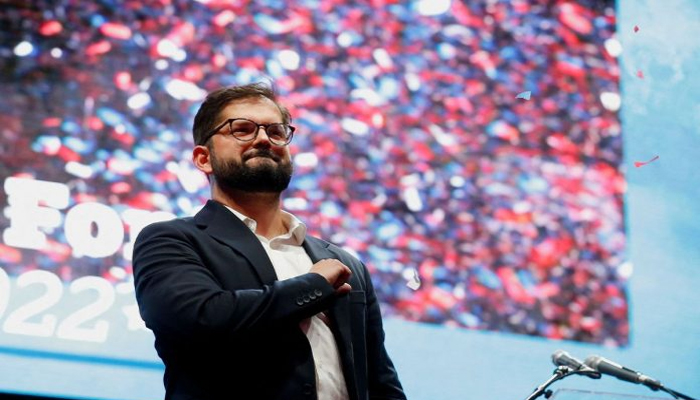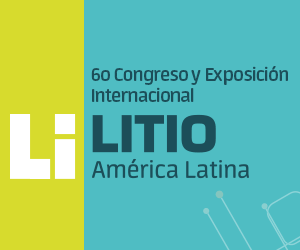Latin America has reversed its turn to democracy. Could the U.S. do the same?
It’s been a tough year for liberty in Latin America, and it would be a mistake to blame it on Covid-19. The rise of authoritarianism was under way before the pandemic hit last year, and it’s unlikely to recede after the virus wanes
Latin America suffers from too much government. Taxation, regulation, weak property rights and corruption conspire against entrepreneurship and self-discovery. Yet in the 1980s most of the region returned to democracy, giving the struggle for liberty a fighting chance. That chance is slipping away. In the past two decades, the institutions necessary to ensure political and ideological competition have been destroyed in several countries
Freedom dies when this happens, as it did in Cuba in 1959, Venezuela around the turn of the century, and Bolivia and Nicaragua in the 2000s. Reviving it isn’t easy because citizens clamoring for their rights are no match for a state that uses its monopoly power to impose terror.
This year more countries joined the endangered list. Peru, Honduras and Chile elected extremist candidates with close ties to the military dictatorships in Cuba and Venezuela. All three represent interests that want to rewrite their constitutions, opening the door to the legal destruction of democratic checks on permanent power. El Salvador’s populist president, who doesn’t hide his authoritarian ambitions, also wants a new constitution.
Brazil’s institutions jealously guard their independence. Frail democracy in Argentina and Ecuador has so far narrowly survived. But Mexico may not be so lucky. President Andrés Manuel López Obrador plows down anything in the way of his transformational agenda. He recently gained control of the central bank and is militarizing the economy. Financial investigations give him the power to freeze assets. He has used them against adversaries in business and government, including the Mexican Supreme Cour
The region as a whole is less free than it was a decade ago, the Washington-based Cato Institute and the Vancouver-based Fraser Institute find in their seventh annual Human Freedom Index, released this month. The survey—using 2019 data, which is the latest year available—of 165 jurisdictions measures economic freedom as well as indicators of personal liberty. These include the rule of law, security and safety, religious liberty, and the rights to assembly, expression, movement and personal relationships. The goal is to provide a snapshot of the status of fundamental human rights and self-determination in each country.
It’s no coincidence that countries that have political arrangements—like the separation of powers, transparency and electoral integrity—protected by the independent pillars of self-government are the freest. In Latin America those are Chile, Costa Rica and Uruguay. But freedom isn’t destiny.https://tpc.googlesyndication.com/safeframe/1-0-38/html/container.html
In his new book, “In Defense of Liberal Democracy,” Salvadoran economist Manuel Hinds traces 20th-century tyranny in Europe to the economic disruption caused by the Second Industrial Revolution, in the late 19th century. Yet as he researched the question of how such disruptions cause “wars and domestic conflicts,” Mr. Hinds found the “answers are only obliquely related to economics.” More important, ”they are anchored in values and culture, which in turn give shape to institutions, economic and noneconomic.”
Mr. Hinds says the “connectivity revolution” of the 21st century risks causing similar political upheaval in the U.S. But the narrative applies to democracies everywhere.
The problem isn’t any one election in which a politician, who prefers socialism over individual freedom, prevails. It’s the extremist view—left or right—that an electoral victory is a mandate to dismantle the institutional framework that protects minorities and blocks the ambitions of absolutism.
Extremists organize the aggrieved and work to stir their passions, creating conflicts on every level and undermining security. Media, the arts, academia, science, political activism and the judicial system become illiberal weapons.
Nations don’t vote for despotism. But looking back at Lenin and Hitler, Mr. Hinds shows that when a nation is seduced into handing over broad discretion to a messianic figure, that nation seals its fate. “Leaders play a crucial role in unifying people around a destructive idea. But such leaders emerge in response to a demand from the people,” Mr. Hinds writes.
“Hatred can turn populism into destructiveness,” he observes. But then, that’s the point—as can be seen in Chile. The extremists who managed the victory of President-elect Gabriel Boric last week want to destroy Chile’s institutions on grounds that they are constructs of the establishment.
Chile is very different from Venezuela. But Chile’s activists aren’t different from their fellow travelers in Venezuela who backed the democratic election of Hugo Chávez in 1998, or the extremists in Bolivia who championed the candidacy of Evo Morales in 2005. Sandinista Daniel Ortega also returned to the presidency via the ballot box. What began in each case as promises by a strongman to make society fairer has ended in tears.
Mary Anastasia O’Grady is an Opinion Columnist, writes «The Americas,» a weekly column on politics, economics and business in Latin America and Canada that appears every Monday in the Journal. Ms. O’Grady joined the paper in August 1995 and became a senior editorial page writer in December 1999. She was appointed an editorial board member in November 2005. She is also a member of the board of directors of the Indianapolis-based Liberty Fund.
Editor’s Note: This article was originally published by The Wall Street Journal (WSJ), on December 26, 2021. All comments posted and published on Petroleumworld, do not reflect either for or against the opinion expressed in the comment as an endorsement of Petroleumworld.
Use Notice: This site contains copyrighted material the use of which has not always been specifically authorized by the copyright owner. We are making such material available in our efforts to advance understanding of issues of environmental and humanitarian significance. We believe this constitutes a ‘fair use’ of any such copyrighted material as provided for in section 107 of the US Copyright Law. In accordance with Title 17 U.S.C. Section 107. For more information go to: http://www.law.cornell.edu/uscode/17/107.shtml.





